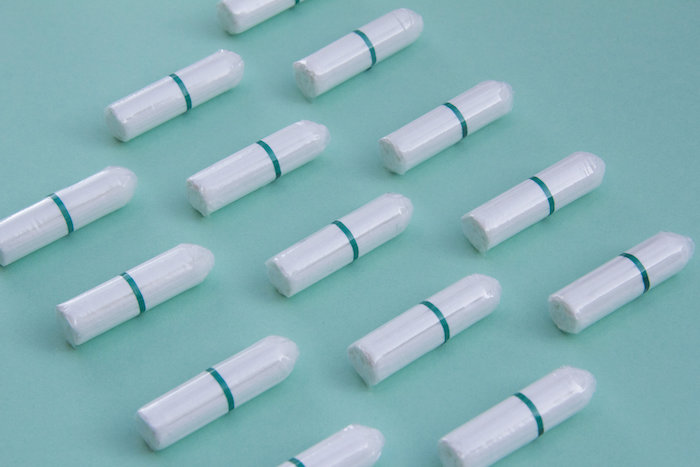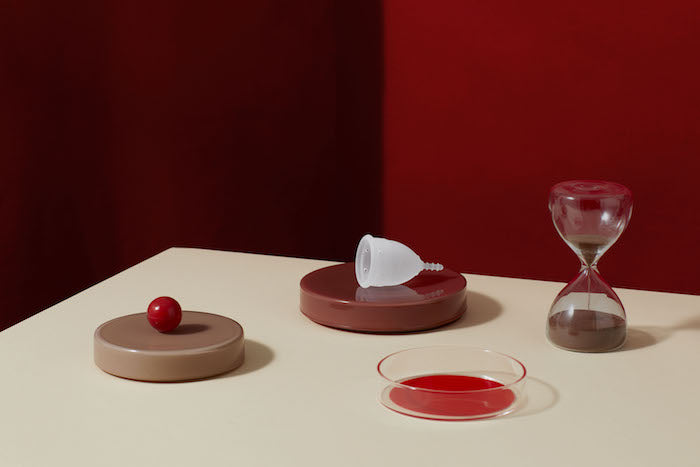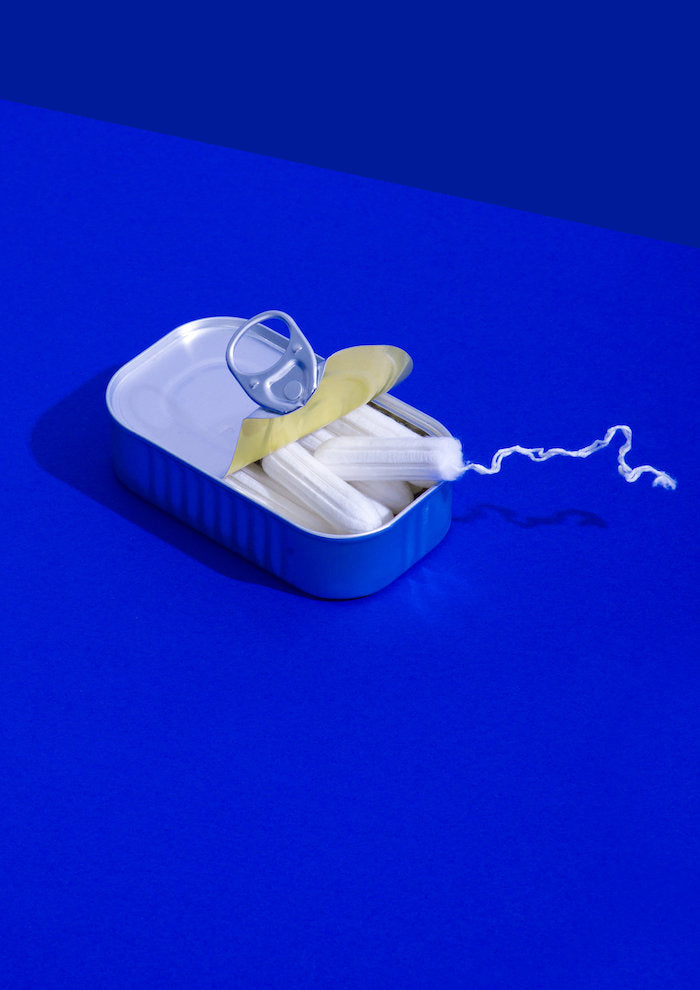As the topic of sustainability becomes something we are all paying closer attention to in our day-to-day lives, some of our most taken for granted habits are being reassessed under the environmental spotlight. From what we drink out of to what we take our makeup off with - the quest to minimise our waste and try harder to look after the planet seems to be constantly evolving. One topic in particular is getting us especially interested: periods.
Deciding what sanitary products we use each month hasn’t traditionally been a choice influenced by the environment. In fact, in 2016 just 6% of women were concerned with the sustainability of their period products - this year it’s increased to over 50%. An innovative mix of new brands have come to the forefront of the industry, shaking things up and making our periods more eco. At Glasshouse, we’ve recently introduced Yoni (organic cotton pads and tampons) and OrganiCup (reusable menstrual cup) in the salon and online, each offering healthy, green alternatives to traditional period products. Disrupting the market further is Thinx - a revolutionary absorbent pant that rules out the need for pads or tampons - and Dame, the world’s first reusable tampon applicator which has recently been named Product of the Year.

So, why the change? Plastic consumption is one reason that’s spearheading the movement. In 2016, the Marine Conservation Society found 20 tampons and sanitary items per 100 metres of shoreline. Considering that the plastic found in most regular tampons and pads can take up to 500 years to degrade and the average woman will use 11,000 menstrual products in a lifetime, that’s a lot of unnecessary waste making its way into our - already overwhelmed - surroundings.
Ella Daish is one woman on a mission to tackle this problem. Her campaign #EndPeriodPlastic has over 100,000 signatures and she’s continually putting pressure on manufacturers to rethink how they package their period products. Ella launched the campaign after being shocked to find out that some pads can contain up to four plastic bag’s worth of plastic. She’s been raising awareness of the subject and piling the pressure on big brands to rethink the materials they use to make and package their sanitary products.
Although plastic is one material that’s garnering plenty of eco-attention, the other substances that go into making sanitary products are also rightly causing a stir. Tampons, for instance, can contain traces of everything from pesticides to chlorine, fragrance and potentially harmful chemicals. As they’re not classified as ‘medical’ items, the exact substances that go into making them doesn’t have to be public. In the same vein to how we’ve been more concerned with the ingredients we put in and on our bodies, understanding what the healthiest and safest method of sanitary protection has become a conversation worth having.

Mariah Mansvelt Beck co-founded organic cotton sanitary brand Yoni in 2013 after she found out she was developing cervical cancer and advised by her doctor to stop using synthetic period products. “I became aware with my friend and co-founder Wendelien that we can’t know what our regular tampons and pads are made from because they don’t list anything on the packaging” she told us, “For every other care product - your shampoo, soap, toothpaste - you can expect to find a list of ingredients but for our most intimate products, nothing is mentioned.”
This became the basis of what Yoni stands for: breathable, hypoallergenic, biodegradable and always made from organic cotton. “Our products are made from certified organic cotton and our pads and liners have a backing made from bioplastic derived from cornstarch. We choose organic cotton specifically since cotton is one of the most sprayed-upon crops in the world” she explains.
Likewise, reusable menstrual cup brand OrganiCup (which, alongside Yoni, have recently launched on Glasshouse Shop) has put the environment at the forefront of their ethos. If cared for correctly, a single OrganiCup can last up to 10 years - that’s a decade worth of sanitary waste avoided and a considerable cost saving too. We think both brands are doing a powerful job at encouraging women to rethink the choices that come with their monthly cycle. In a market that hasn’t innovated in decades, it’s exciting to see considerable change finally happening.

The recent change has come hand-in-hand with a more open approach to periods in general. Whether it’s through highlighting issues such as period poverty or women feeling the freedom to speak more openly about their periods on social media, the ‘taboo’ surrounding the subject - particularly in the UK - has begun to fade.
“When we started there was almost no conversation or media coverage about menstruation and product choices” explains Mariah, “There has definitely been a shift - nowadays there are entrepreneurs like ourselves who are pushing the conversation and aiming to break the taboo around menstruation. We also see activists and artists taking on the issues and discussions on tampon tax, menstruation leave and access to products in schools, prisons, for the homeless and for refugees - existing policies are being changed to be more inclusive and to, in the end, normalise rather than medicalise.”
It seems that in 2018 the topic of periods is up for discussion in every sense of the word - whether that be what our sanitary products are made out of or how much we should be paying for them, it’s never felt more relevant to reassess what we thought we knew about periods. At Glasshouse, we’re particularly happy to have two pioneering brands on board who’s products are designed to care for the environment and look after our bodies at the same time. Our monthly cycle has never felt more exciting.
Words: Lucy Vincent Cover image: Thinx




